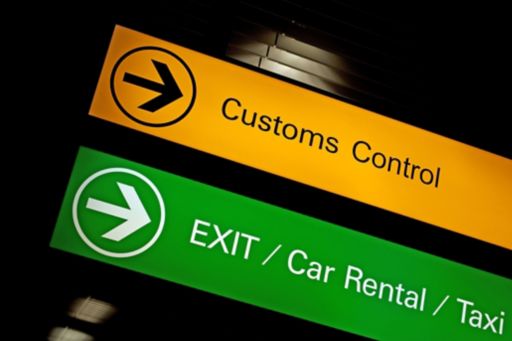Tax & Legal News Flash Issue 17
Tax & Legal News Flash Issue 17
The New Customs Act has been introduced - Customs Act B.E. 2560

The New Customs Act has been introduced - Customs Act B.E. 2560
After 8 years of negotiation and deliberation, on 17 May 2017 the Customs Act B.E. 2560 (2017) (“the new Act”) was finally published in the Royal Gazette and will take effect on 13 November 2017.
Therefore, towards the end of 2017, the new Act will replace the Customs Act B.E. 2469 (1926) (“the existing Act”). There are many new changes to take note of since the existing Act only had 122 sections, whereas the new Act has 262 sections.
Taxpayers should consider how the changes and additional regulations in the new Act may impact their business operations in order to ensure they are ready to implement such changes by the effective date.
The key changes to existing sections in the new Act are summarized in the table below:
| The existing Act (Customs Act B.E. 2469) | The new Act (Customs Act B.E. 2560) |
| Revision of penalties in relation to smuggling and duty evasion | |
| Under Section 27, smuggling and duty evasion is subject to (1) a penalty equal to 4 times the price of the goods (which includes the duty); (2) imprisonment for a term not exceeding 10 years; or (3) both. | Under Section 242 – 244, the penalties are relaxed as follows:
|
| Revision of penalties in relation to a false declaration | |
| Under Section 99, a false declaration is subject to (1) a penalty not exceeding 500,000 baht; (2) imprisonment not exceeding 6 months; or (3) both. | Under Section 202 – 204, the penalties are amended as follows:
|
| Revision of regulations concerning commission paid to the customs officer and whistleblower | |
| Under Section 102 ter, the commission payment paid to the customs officer and whistleblower is regulated under the authorization of the Director-General | Under Section 255, there is a revision and reduction of the commission paid to the customs officer and whistleblower.
|
| Limitation of surcharge collection and a new provision inserted for the reduction of the surcharge and fine | |
| Under Section 112 quarter, a monthly surcharge can be collected which is based on 1% of the duty paid or duty shortfall amount. | Under Section 22:
|
| Reduction of the period of time that imported goods should remain in the custody of the customs | |
| Under Section 61, imported goods will be deemed as “Overtimes goods” if the goods have remained in the custody of the customs for more than 2 months (plus 15 days for formalities clearance). | Under Section 107, imported goods will be deemed as “Overtimes goods” if the goods have remained in the custody of the customs for more than 30 days (plus 15 days for formalities clearance). |
| Extension of duty refund period | |
| Under Section 10, a duty refund cannot be claimed after the expiry of 2 years from the date of importation or exportation, as the case may be. | Under Section 25, the duty refund period is extended to 3 years. Therefore, a taxpayer can claim a duty refund within 3 years from the date of importation or exportation, as the case may be. |
The key additional regulations in the new Act include the following:
- Limitation period of customs post clearance audit (Section 159): A 5-year limitation period is imposed for a customs post clearance audit.
- Transit and transshipment (Section 102): New regulations have been inserted for transit and transshipment and a 30-day limitation will apply to the transit and transshipment of goods in Thailand.
- Seizure authorization of the Director-General (Section 24): Authorization has been granted to the Director-General to, in respect of a person liable to a duty which has failed to pay such a duty, seize or sell the said person’s property by way of an auction without requiring a court order.
- Limitation period of appeal consideration (Section 41): A limitation of 180 days has been imposed for the Appeal Commission to conclude on a matter brought before it. The 180 days will run from the date the receipt of the appeal and the complete evidence is received by the Appeal Commission. An extension not exceeding 90 days may be granted.
The enforcement of the new Act at the end of this year will be the largest development in Thailand’s customs landscape since the customs law was first introduced in 1926. Business operators in Thailand anticipate a significant impact on their import and export transactions. KPMG welcomes any opportunity to discuss the relevance of the above changes to your business.
© 2026 KPMG Phoomchai Tax Ltd., a Thailand limited liability company and a member firm of the KPMG network of independent member firms affiliated with KPMG International Cooperative (“KPMG International”), a Swiss entity. All rights reserved.
KPMG International Cooperative (“KPMG International”) is a Swiss entity. Member firms of the KPMG network of independent firms are affiliated with KPMG International. KPMG International provides no client services. No member firm has any authority to obligate or bind KPMG International or any other member firm vis-à-vis third parties, nor does KPMG International have any such authority to obligate or bind any member firm.

